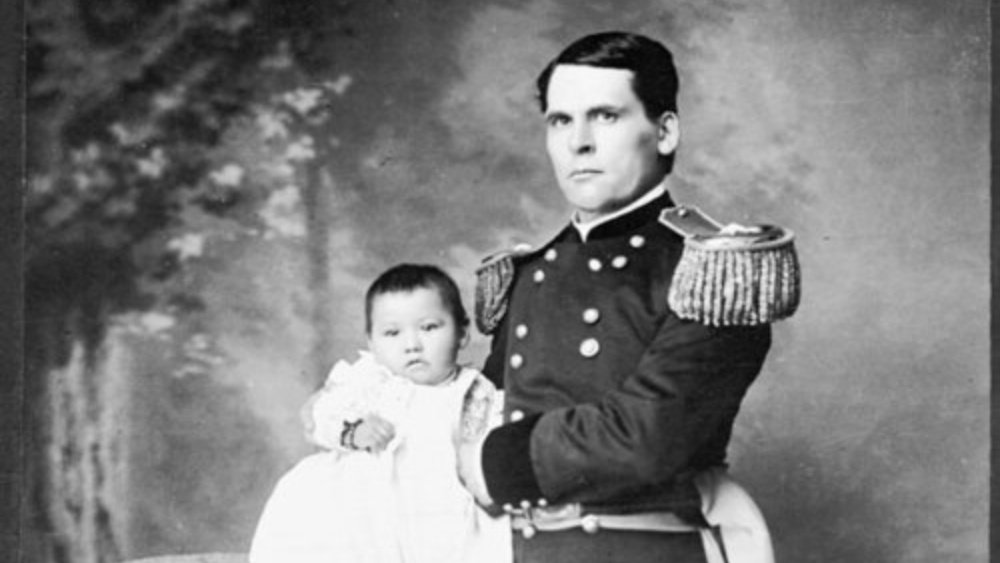Leonard Wright Colby lived a life marked by service, ambition, and controversy. Born on August 5, 1846, in Cherry Valley Township, Ohio, Colby grew up the fifth of seven children in a farming family that later moved to Illinois. From an early age, he seemed destined for a life on the battlefield and in public life. By the time he was a teenager, he had already stepped into the defining conflict of his generation—the American Civil War.
A Teenage Soldier in the Civil War
At just 18, Colby enlisted in the 8th Illinois Volunteer Infantry Regiment. He fought bravely for the Union cause and was wounded in one of the last battles of the war at Fort Blakeley in 1865. His courage earned him recognition for gallantry, especially when he captured a Confederate flag during the Siege of Mobile. For a boy who was not much older than many high school students today, the war shaped his identity and propelled him toward a lifetime of military service.
After the war ended, Colby’s adventurous spirit carried him beyond the borders of the United States. Along with fellow veterans, he briefly joined the forces of Emperor Maximilian in Mexico, serving as a captain. Although his time there was brief, the experience provided him with an international perspective that few young Americans of his time could claim.
Scholar and Leader in the Making
When Colby returned home, he was determined to continue his education. He graduated from Freeport High School in 1867 with top honors before enrolling at the University of Wisconsin. There, he excelled academically, earning degrees in both the classical course and in engineering disciplines. He also led the university cadets as captain, showing that his military talents were just as sharp as his academic skills.
Colby went on to complete a law degree, laying the foundation for the legal and political career that would define much of his adult life. In 1872, he married Clara Dorothy Bewick, a pioneering suffragist who would later found and edit The Woman’s Tribune. The couple moved to Beatrice, Nebraska, where Colby set up his law practice.
Nebraska’s Military Man
Colby’s ties to the military never loosened. In 1875, he helped organize a militia unit in Nebraska, known as the Paddock Guards, and steadily rose through the ranks of the state’s National Guard. Moreover, in 1887, he assumed the rank of brigadier general and took command of thousands of Nebraska soldiers.
In 1890–1891, rising tensions among the Sioux on the Pine Ridge Reservation erupted into violence, putting his leadership to the test. Colby and his men participated in operations that culminated in the tragic Wounded Knee Massacre. While his troops earned praise from General Nelson A. Miles for their discipline and effectiveness, the legacy of Wounded Knee would shadow Colby’s reputation.
From this same battlefield came one of the most personal chapters of his life. In the aftermath, soldiers discovered a Lakota infant—later known as Zintkala Nuni, or “Lost Bird”—beside her dead mother. Colby took the child home and adopted her, naming her Margaret Elizabeth. The story captured the public’s imagination as an act of compassion, but later reports showed that Colby had neglected Lost Bird, and she endured hardship, casting a darker shadow on his legacy.
From State Senate to Washington, D.C.
Alongside his military career, Leonard Wright Colby pursued politics. He served as a Nebraska state senator in the late 1870s. In the 1880s, he returned to the Senate and introduced dozens of bills. Many of those bills went on to become law. His influence later reached the national stage when President Benjamin Harrison appointed him Assistant Attorney General of the United States in 1891.
In Washington, Colby handled complex cases involving claims against the government and Native American groups—cases worth millions of dollars. Later, he worked directly for several groups as their attorney, securing a significant settlement of over $6 million for the Cherokee Nation. His legal skills and persistence earned him respect, even among critics of his military actions.
Leonard Wright Colby in the Spanish–American War
Colby’s military career reached new heights during the Spanish–American War. In 1898, President William McKinley commissioned him as a brigadier general of volunteers. Leonard Wright Colby led troops at Chickamauga Park in Georgia and in Alabama, then took command in Cuba in 1899. Though his time in the war was relatively brief, he once again proved his ability to organize, train, and command men during a time of national crisis.
After returning to Nebraska, Leonard Wright Colby was appointed State Adjutant General, where he oversaw military affairs until 1903. Even into his later years, he sought to return to active duty, offering his services during World War I and remaining active in veterans’ organizations.

Personal Life and Family Ties
Colby’s personal life was as complicated as his public career. His marriage to Clara Dorothy Bewick was often strained, partly because of his long absences and partly because of his personal choices. While Clara was away advocating for women’s rights, Colby adopted Lost Bird without her knowledge. Eventually, the marriage ended in divorce in 1906.
That same year, Colby married Marie “Maud” Moller, with whom he had a son, Paul Livingston Colby. Reports suggest that this second marriage brought stability in his later years, though controversy over his relationship with Lost Bird and his first family never entirely faded.
Later Years and Final Chapter
Colby remained deeply engaged in civic life until the end. He practiced law in multiple states, served as a Nebraska district judge from 1921 to 1924, and took active roles in community organizations, from the Red Cross to Liberty Loan campaigns during World War I. He died on November 18, 1924, in Leavenworth, Kansas.
A Complicated Legacy
Leonard Wright Colby’s legacy is difficult to summarize. To some, he was a brave soldier and a dedicated public servant. He was also seen as a skilled attorney who fought for justice both in the courtroom and on the battlefield. To others, he remained a controversial figure, forever linked to Wounded Knee. His personal failings also left marks that tarnished his reputation.
What is certain is that Colby’s life reflected the complexity of his era. It was a time of war, westward expansion, political change, and deep contradictions in American society. From the Civil War to the Spanish–American War, he played a role in shaping events. He shaped state politics and national law, leaving a mark that cannot be ignored.











